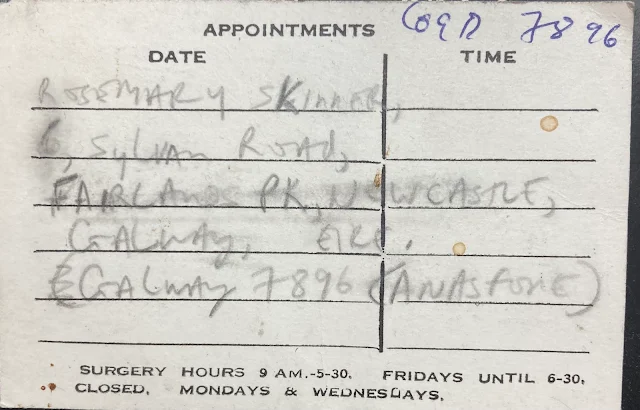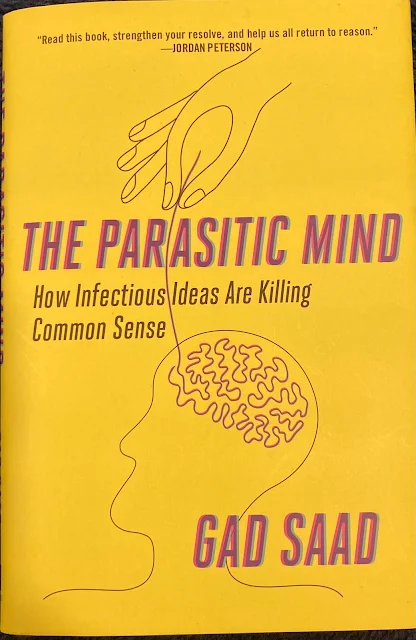 |
On the right is the Kennedy family home on Rushbrooke Avenue in Verdun where they lived in the 1920s.
They had a private tennis court adjacent to their property. |
On Leo Kennedy
Ken Norris told me that in the 1970s he and a Montreal
publisher invited Leo Kennedy to publish a book of poems, it would have been Kennedy's
first book since The Shrouding (1933).
Kennedy arrived at the meeting with a garbage bag full of poems (not an
auspicious beginning!) and the meeting failed to produce a book; it would have
been only his second book in forty years. One wonders about this meeting. Did Kennedy
sabotage an opportunity to publish a second book so late in life? Was it a way
to get out of publishing what may have been inferior work? Did he dislike my
friend or the publisher and not want to work with them, then why go to the
meeting? Or was there some psychological complex that had held him back from
writing new poems or publishing them? Still, despite the dearth of new poems by
Kennedy he always insisted that he was a poet, he was not shy about his place
in Canadian literature, nor should he have been.
When I heard this story about Kennedy I thought that
he was a fool to have passed up on a publishing opportunity; however, I've
known other poets like him who had lots of talent but who never fulfilled themselves
as poets, they stopped publishing for several decades or never published again
after some early success. Am I the only one to think of this as a failing on
Kennedy's part? Perhaps I am. During the years after The Shrouding Kennedy didn't publish much original poetry but he
did publish book reviews and even some poems in Poetry (Chicago). Patricia
Morley in As Though Life Mattered: Leo
Kennedy's Story (1994), her biography of Kennedy, mentions that these reviews were perceptive and
incisive. As well, Kennedy was also interested in socialist ideas that were at
odds with his work in an ad agency as a copywriter for consumer goods. Kennedy
was one of the early "Mad Men" as depicted in the television show by
that name. It seems that his creative energy went into copy writing.
Perhaps the circumstances of Kennedy's personal life
need to be considered. After 1935 Kennedy had to make a living to support his
family; he had a second marriage and years later he took care of an
invalid wife. Indeed, he had a successful career in copy writing and the family
moved several times because of his work. He had three sons—one with his first
wife and two with his second wife—and he helped raise two grandchildren which
is what brought him back to Montreal in the 1970s. Kennedy was no puer aeternus,
the Jungian term that describes a man who does not take on full adult
responsibilities like gainful employment, maintaining long term and meaningful
relationships, supporting his family, and being a fully functioning adult in
society. He lived a responsible life of stability and middle class
respectability and was well-liked and respected by his colleagues; however, perhaps
(solely as conjecture) this middle class life conspired to end his career as a
poet even though others have lived middle class lives such as his and they
continued being poets. So what gives?
What gives is that after hearing of the "poems in the
garbage bag" episode I saw Kennedy in a new light, as a kind of archetypal
trickster, a coyote figure in mythology, someone who punctures the appearance
of respectability in others. The anecdotes that Morley recounts of Kennedy
shooting squirrels and storing them in his freezer, and other stories, suggests
to me that Kennedy had a bit of the joker in him; perhaps even his copy writing
career is a job suited to the jester, to someone aiming to sell stuff to people
who don't want or don't need the stuff up for sale. This is just to suggest an
explanation for some of Kennedy's behaviour and perhaps his work as a poet.
Kennedy is someone who had lots of talent as a poet, he is a
formalist in his work, in some poems he is counting syllables, he has an
incredible vocabulary in his work, and his images, metaphors and similes can be
stunning. There is also something "old fashioned" in his work, I am
not sure that he is a truly modern poet except that he was active as a poet in
the Modern period; he's some kind of an aberration, a solitary voice that is
self-invented. Kennedy has a depth of perception that is sometimes greater than
the other Montreal Group of poets from McGill University. But I don't think he felt included
among the Westmount poets who dominated English language poetry back in the
1930s. F.R. Scott made some cracks about Kennedy coming from working-class
Verdun even though Kennedy had as much talent as FRS as a poet; Kennedy was not
truly a working class person, his father owned a successful business located in
Old Montreal and their home in Verdun was substantial. It is ironic that Scott
is the defender of the working class, one of the founders of the CCF, a
precursor of the NDP, and yet he is snobbish with Kennedy. Could Kennedy not
have been offended by this, or contemptuous of Scott because of this? A
response to Scott and his patrician lifestyle and social class might be to
become even more eccentric. This, of course, speaks to the considerable class
divisions that English-speaking Montreal experienced in the past; the wealthy
lived in Westmount and had little or nothing to do with the English in Verdun,
NDG, Griffintown, or elsewhere in the city of Montreal.
It's also curious that in 1926 AJM Smith published a poem
entitled "The Shrouding", seven years before Kennedy published his
book with this same title. Was there some conflict between them because of
this? Small things divide poets! A friend published a poem with the same title
as one of my poems and I always wondered what that was all about. BTW, his poem
was inferior to mine... But I also published a poem entitled
"Heirloom" after reading AM Klein's poem "Heirloom"; with
its allusion to Klein my poem was to honour the older poet and it was published
years (in the mid-1970s) after Klein's death. Was Kennedy making some kind of a comment, positive
or negative, about Smith or the poems that Smith was writing by using Smith's
poem title for his book?
I also question some aspects of Patricia Morley's biography
of Kennedy; she treats Kennedy in a benign way, but you also get the feeling
that she thought of him as her personal pet project, she was writing his
biography and she was proud to have him captive. She insinuates herself into his life story and becomes a part of Kennedy's biography. She comments that there is no
biography of AJM Smith; Anne Compton's A.J.M.
Smith, Canadian Metaphysical (1994)
is not a biography but a discussion of his work. Kennedy has a biography and
the biography was a big deal for Leo Kennedy as it would be for any poet. It
must have made him more impressive with his family and with other poets, it also
returned him to public attention. I doubt we would pay him as much attention as
we are (for instance this essay) if the biography hadn't been published, it raised
interest in Leo Kennedy, poet. Kennedy was serious about the biography but he
must have realised how little he had achieved in poetry; indeed, later he has
difficulty collecting any archival material when requested to do so. There are
no extensive Leo Kennedy Fonds; he came up with very little archival material.
Now, I'm just thinking about Leo Kennedy and trying to
figure him out and maybe he's not a trickster at all. One of the things critic
do, one of the things some readers do, is try to figure out some explanation of
the writer or the writer's work that he or she is currently reading. Another
thing is to build on what we read, to develop some of the ideas we read and
make them a part of out own insights into life. We find something curious, or
something that appeals to us, or something that deepens our feelings and
understanding about life, or we find something that speaks to us as human
beings and we need to explore that writer or his or her work for ourselves, to apply
it to our own understanding of life. That's what I've tried to do here.
Note: Kennedy may
have published a second book in 1972 or
1992, Sunset in the States published by Diane Press; this seems to be a summary of some
kind of legislation in Michigan, it is not mentioned in Morley's book on
Kennedy. Perhaps it is not Kennedy's work but wrongly attributed to him or to someone else with a similar name.
18 January 2018






















